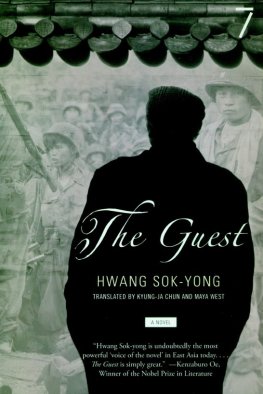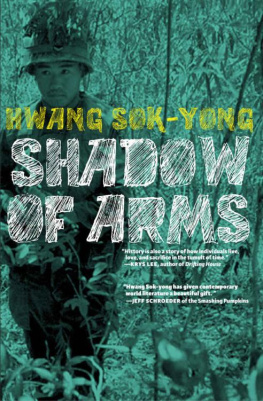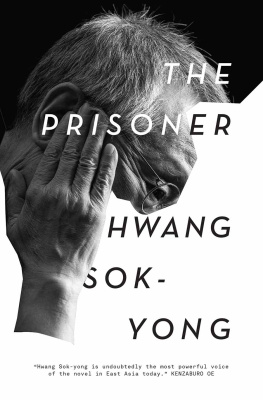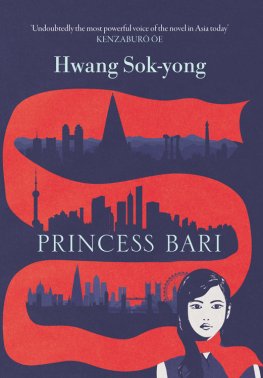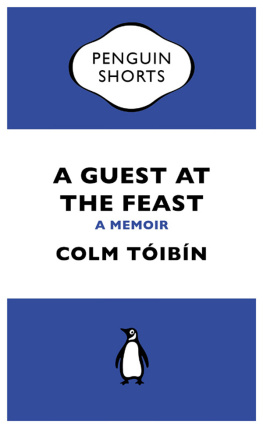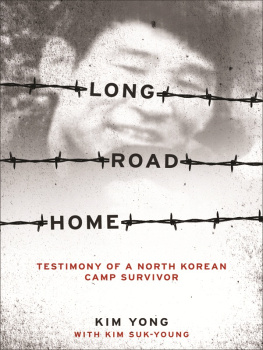WHEN SMALLPOX WAS first identified as a Western disease that needed to be warded off, the Korean people referred to it as mama or sonnim, the second of which translates to guest. With this in mind, I settled upon The Guest as a fitting title for a novel that explores the arrival and effects of Christianity and Marxism in a country where both were initially as foreign as smallpox.
As smallpox reached epidemic proportions and began sweeping across the nation, shamanic rituals called guest exorcisms were often performed to fight against the foreign intruder. The Guest is essentially a shamanistic exorcism designed to relieve the agony of those who survived and appease the spirits of those who were sacrificed on the altar of cultural imperialism half a century ago.
This twelve-chapter novel is modeled after the Chinogwi exorcism of Hwanghae Province. The ritual consists of twelve separate rounds. As is the case during an actual exorcism, the dead and the living simultaneously cross and recross the boundaries between past and present, appearing at what seem like random intervals to share each of their stories and memories. My intention was to create an oral discourse in which a type of time travel provides the latitudinal coordinates of the story, with the longitude provided by the individual characters first-person narratives, revealing a wide range of experiences and perspectives.
If it is true that trying to rid yourself of residual memories inevitably results in a clearer and more solid memory, then the spirits of the past must be impossible to escape, regardless of whether they are alive or dead. At times, these apparitions can be more than mere phantoms: they are sent to us by the tragic wars of the past as a form of karma we must deal with they are facets of the burden of history, a vivid reality.
In Gabriel Garca Mrquezs One Hundred Years of Solitude, the reader is exposed to the ghost of a forefather who inexplicably returns to life. In that text also the ghost is more than a mere magical phantasm. A reality rife with exploitation and repression had weighed upon the people of Latin America for countless years. A product of the pressing actuality that freedom is an impossible dream, the phantom is one that history itself must face down, fight, drive out, use, and conquer. Countless souls have been lost to the blind inevitability of history itself; dismantling this structure and returning to a state in which time belongs to the people is a goal of this novel.
I began work on The Guest in 2000, the fiftieth anniversary of the Korean War. The September 11 attacks a year later came directly after The Guest was first published, and the onset of this new Age of Terror, along with the inclusion of North Korea in the so-called Axis of Evil, and the beginning of a whole new war, made the fragility of our position clearer than ever. It was a chilling experience to be so reminded that despite the collapse of the Cold War infrastructure, our small peninsula is still bound by the delicate chains of war.
Because of Koreas identity as both a colony and a divided nation, both Christianity and Marxism were unable to achieve natural, spontaneous modernization; instead, they were forced to reach modernity in accordance with conscious human will. In North Korea, where the legacy of class structure during the traditional period was relatively diluted compared to the South, the tenets of Christianity and Marxism were zealously adopted as facets of enlightenment.
During the Korean War, the area of North Korea known as Hwanghae Province was the setting of a fifty-day nightmare during which Christians and Communists two groups of Korean people whose lives were shaped by two different guestscommitted a series of unspeakable atrocities against each other.
Today, in a district known as Sinchn in Hwanghae Province, there stands a museum that indicts the American military for the massacre of innocents. The literal translation of the museums name is The American Imperialist Massacre Remembrance Museum. Many years ago, when I visited the North, I was given a tour of this museum as a matter of course.
Later on, during my stay in New York, I met a Korean minister named Ryu and heard the eyewitness account of his childhood in Hwanghae Province. Not too long afterwards, in Los Angeles, I was lucky enough to meet another survivor who shared with me her detailed firsthand account of the actual wartime incident that led to the founding of the aforementioned museum.
As it turns out, the atrocities we suffered were committed by none other than ourselves, and the inner sense of guilt and fear sparked by this incident helped formthe roots of the frantic hatred that thrives to this day. Less than five years ago, when I first completed The Guest, I received fierce attacks from both Southern and Northern statists.
The scars of our war and the ghosts of the Cold War still mar the Korean peninsula. I can only hope that this particular exorcism helps us all move a step closer to a true, lasting reconciliation as the new century unfolds.
1. The Exorcism
WHAT REMAINS AFTER DEATH
REVEREND RYU YOSP had a strangely distinctive dream a few days ago.
It might have been the day before he went to New Jersey to meet his older brother, Ryu Yohan, a presbyter of his church or maybe it was the day he first heard the news that he could now visit his homeland for the first time in forty years. He wasnt sure.
The dream was in pieces, disjointed and divided, but each scene remained as vivid as the moments that were passing.

A murky day. A black-and-white photo almost: trees, branches, earth, all black through and through, set against a sky in chalk-white. Something flutters in the wind a rag, perhaps, or a piece of laundry. Could that black bird be a crow? From the corner, underneath a patch of distant darkness, a human figure slowly approaches. One shoulder drooping lower than the other, the figure limps up to the middle of a latticed screen. It is carrying something over its left arm, and every now and then the faint cries of an infant can be heard. The baby is wrapped in a billowing bedsheet that trails down to the figures calves. A wind passes through and away, shaking the trees, but the birds in the air merely quiver in silence. The figure lifts the baby onto the first branch and begins to wind the rest of the sheet around it. The soft, squeaky crying continues, growing fainter and fainter, until gradually it dies away.

Again, but this time different segments. This time the sound comes first. The delicate trembling of a violin floats up from the depths of a dark, hollow pit. Barely audible, like a breeze escaping from a deep cave. It is the song called Touch-me-nots. No doubt about it. And then, perhaps because of the song, a vision of red petals, slowly swirling by like bits of colored paper.

At the mouth of a village in early winter an overcast sky hangs low and heavy over a mountain ridge. Whitish pellets of soft hail float through the air. A man rushes down the hillside, and as he enters my field of vision, I recognize him: my older brother. He looks exactly the way I saw him last, a head of white hair and a bent back. In one hand, he holds a pick, dragging it behind him as he comes down the hill huffing and panting and letting out long gasping breaths. I am dreaming, yes, but even so I cant help but wonder what my brother might have been doing beyond the hill. Up front, up closer to the screen, he is searching for something; he kneels down swiftly, his backside jutting up ah, he means to drink some water. He gulps it down like an animal. Suddenly he lifts his head; a bell tolls nearby. Still kneeling, he raises his upper body, and clasping both hands, he lets his head drop to his chest as though he is going to pray.

